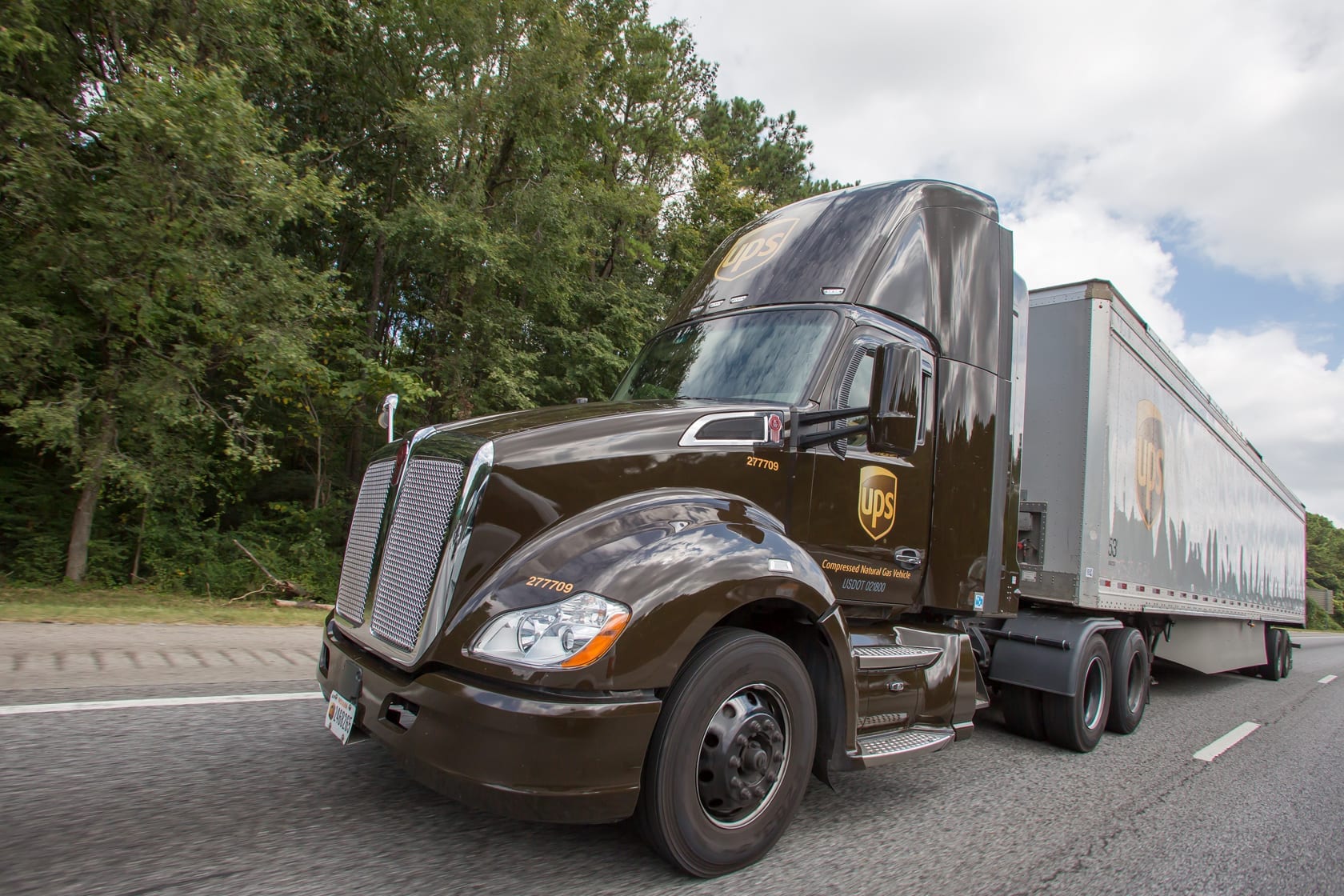In May, global fleet UPS announced a seven-year agreement to purchase 170 million-gallon equivalents of renewable natural gas (RNG) from leading natural gas fuel provider, Clean Energy Fuels—the largest purchase of RNG in US history. This massive commitment to RNG, which Clean Energy Fuels produces from organic waste, signals to the rest of the transportation industry that RNG is a leader in low-carbon fuels.
Utilizing existing natural gas trucks and a network of natural gas stations, UPS’ continued transition to RNG will be seamless, according to their director of fleet procurement. With this new commitment, UPS will now be using almost as much RNG over the next year as it has over the past five years combined. Year-over-year, UPS continues to invest significant capital to expand its natural gas truck fleet and the infrastructure needed to support it because the technology works—it’s proven, reliable, and commercially available today.
UPS continues to invest in its natural gas truck fleet and the infrastructure to support it because the technology works.
Unmatched Emissions Reductions
With more than 120,000 vehicles worldwide delivering over 20 million packages daily (which is only expected to grow thanks to a booming e-commerce industry), UPS’ commitment to RNG to reduce supply chain emissions is huge. Freight transportation remains the fastest growing source of greenhouse gas (GHG) emissions and while many companies are aggressively investing in renewable energy for stores and production facilities, tangible and large-scale efforts like this to reduce emissions from supply chains and freight transportation are woefully missing.
The largest portion of UPS’ 10,000 alternative fuel vehicles in operation, over 6,000 vehicles, are fueled by natural gas. Their recent investment in RNG shows just how fundamental natural gas is in helping reduce costs while achieving their emission goals—including reducing GHG emissions from their global ground operations 12% by 2025, a hugely ambitious goal when emissions are embedded in their supply chain.
RNG use as a transportation fuel has increased 577% over just the last five years and has been proven by thousands of commercial natural gas vehicles for over a decade now. RNG offers a staggering reduction in lifecycle greenhouse gas emissions when compared to diesel or gasoline—on average about 60-80%, and sometimes even well beyond 100% or 200% depending on the RNG source. UPS’ seven-year commitment to RNG will yield a reduction of as much as 1,074,000 metric tons of GHG over the life of their agreement.
RNG use as a transportation fuel has increased 577% over just the last five years.
An Initial Ten Truck Seed
In 2001, UPS submitted a Carl Moyer grant application (with the help of Gladstein, Neandross & Associates—GNA’s—Funding 360 team) that enabled the shipping giant to purchase and deploy their first ten liquid natural gas (LNG) fueled tractors. These trucks each ran more than a million miles between Ontario, California and Las Vegas, Nevada. Eight years after this initial grant, GNA secured ARRA funding to help fund UPS’ next deployment of 150 LNG tractors and three LNG fueling stations, which expanded their existing natural gas corridor through to Salt Lake City.
Scaling (and Testing) Innovation
Globally, UPS has invested more than $1 billion in alternative fuel and advanced technology vehicles since 2009. In recent years, UPS has made significant investments in electric and hybrid vehicles, with 1,000 electric and hybrid vehicles in their operations worldwide. Their fleet size provides a unique opportunity to validate the real word operational and financial viability of new technologies—a critical step for fleets hesitant to deploy emerging technologies at scale. When it comes to medium- and heavy-duty applications, very few electric or hydrogen vehicles are commercially available right now. There is limited in-use experience with these vehicle technologies, especially in large-scale commercial fleet deployments. Natural gas truck technologies have a two-decade head-start at this point; allowing UPS, and other fleets, to make these kinds of large-scale commercial investments.
More Business with Less Impact
Delivering over five billion packages annually ultimately requires efficiency and reliability. Operations at the scale of UPS need road-tested technology that works without compromise. From an initial purchase of ten LNG-fueled tractors nearly twenty years ago, to their recent record-setting RNG purchase, UPS remains a trailblazer, proving the value and potential of RNG for the heavy-duty trucking industry. UPS’ alternative fuel fleet represents one of the biggest and most important green supply chain projects in the world, reinforcing that fleet owners of any size don’t have to choose between cutting costs or cutting emissions—it’s possible to do both.


